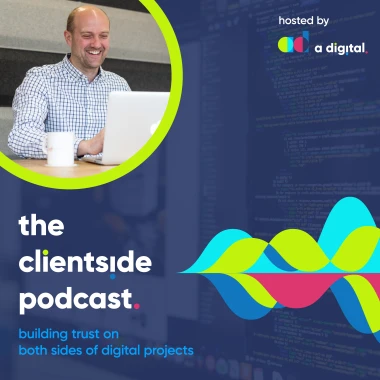
Making an Impact with your Communication with Dominic Colenso
The Clientside Podcast
37 min Dominic Colenso
In this highly relevant episode, Andrew Armitage talks to former Hollywood actor Dominic Colenso about communicating over video - whether you're joining a Zoom meeting, delivering training or giving a sales presentation online.
We talk about Dominic's career in acting and how his understanding of storytelling allowed him to make the transition to helping business owners with their communication. Dominic also shares insights on his IMPACT methodology that is the central theme of his best-selling book, and why mindset is one of the greatest barriers to using video to raise your profile.
Listen on your smart device or read the transcript below
There's nothing comfortable about seeing yourself on screen. You need to get over it, because if you're to make the most out of video, you'll realise it's not about you, it's about your audience.
Dominic Colenso Tweet